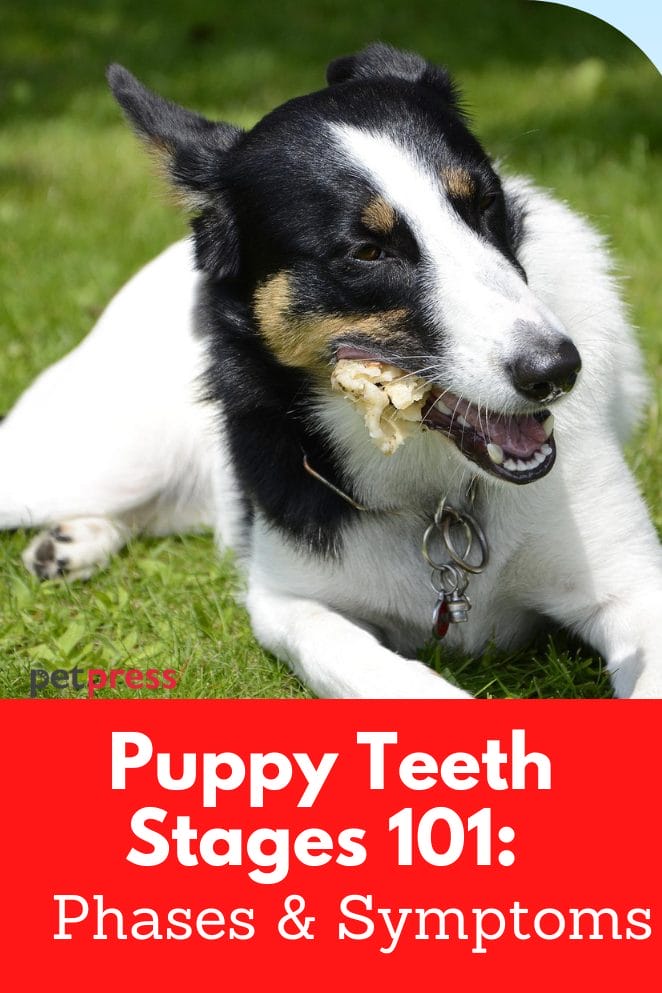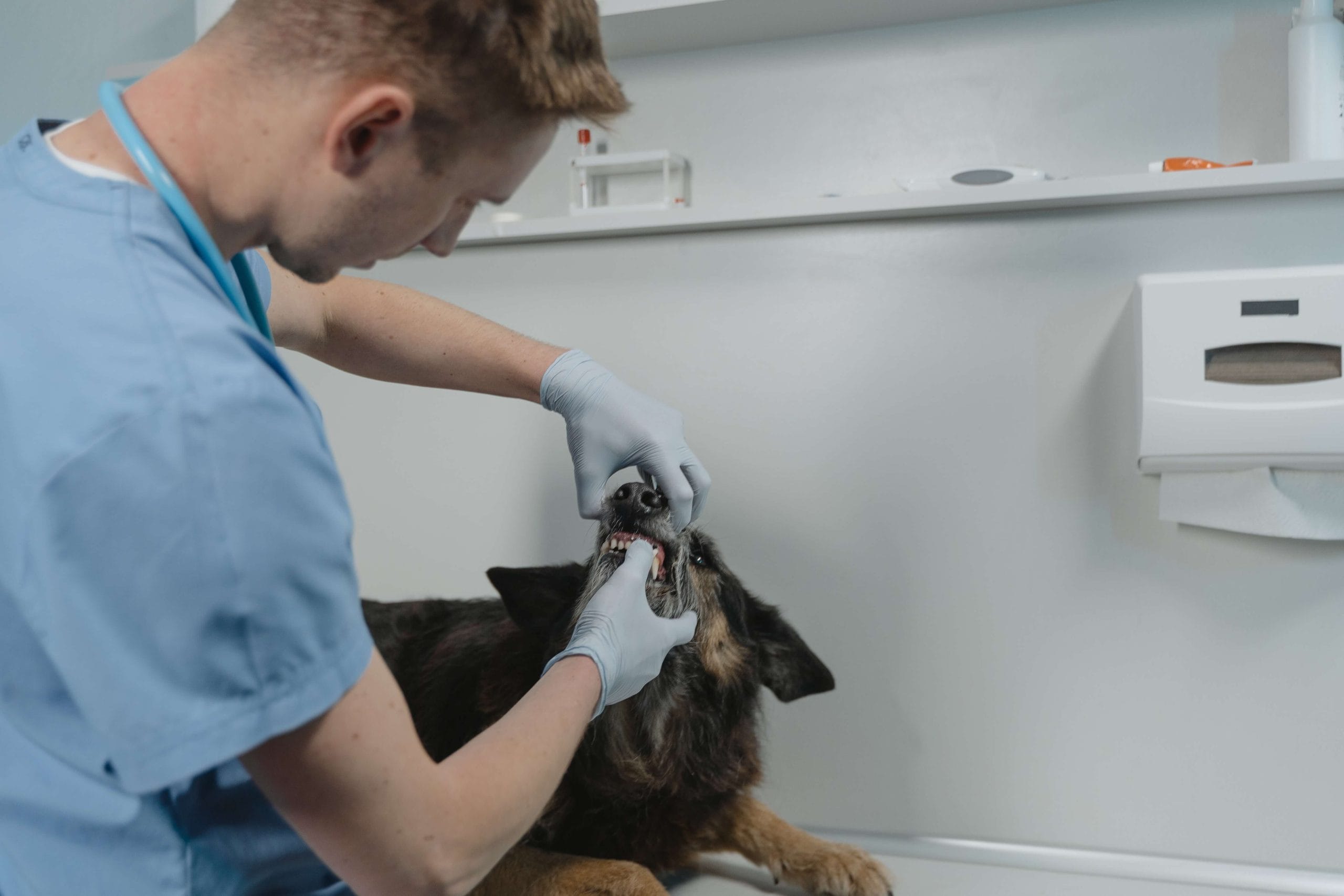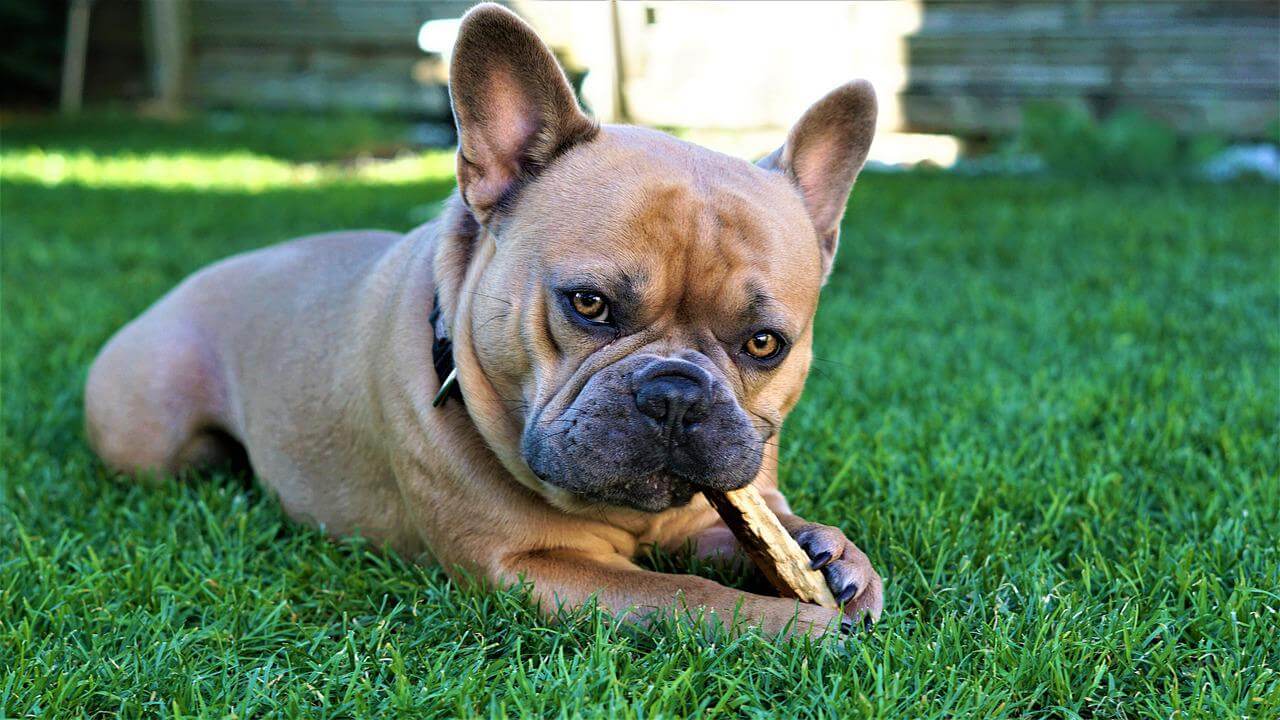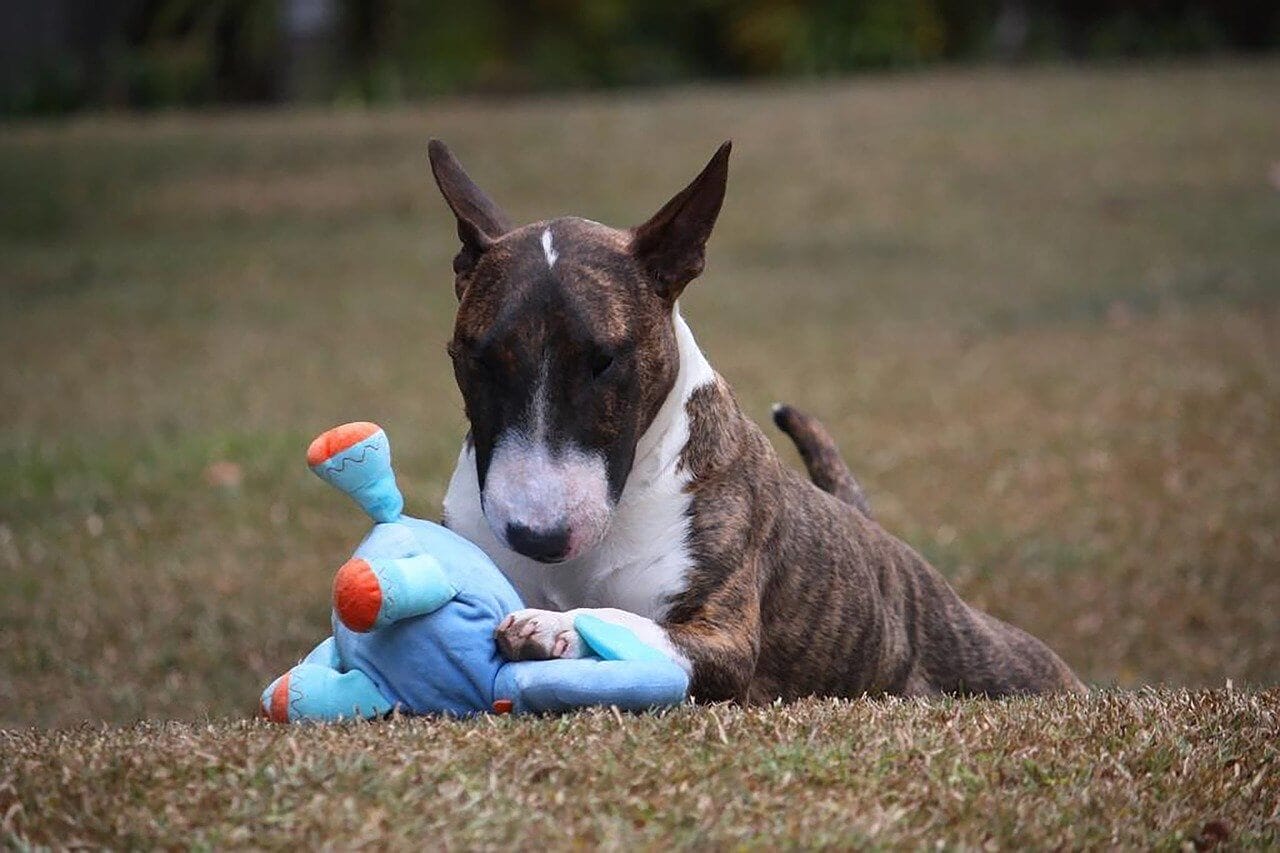
Puppies are born without any teeth, but within a few weeks, their first set of 28 baby teeth will start to come in. Puppies will typically have all of their adult teeth by the time they’re six months old.
There are four main stages of teeth development in dogs:
| Dog’s Age | Teeth |
| 12-20 Weeks | Incisors Appear |
| 12-16 Weeks | Canines Appear |
| 16-24 Weeks | Premolars Appear |
| 20-28 Weeks | Molars Appear |
During each stage, the puppy’s teeth will go through a lot of changes. It’s important to keep an eye on teeth and gums during these stages to make sure everything is progressing normally.
Dental Healthcare

During the teething stages, your pup might feel a little uncomfortable and might turn frantic. Besides that, you will have to take care of its dental hygiene. Here are some tips on how to do just that:
– Regular brushing with a soft-bristled toothbrush designed specifically for puppies can also help keep their teeth clean and healthy.
– Chew toys can help massage their gums and reduce discomfort during teething. Make sure the chew toy is not very sharp and is non-breakable. You can also give shin bone as a natural chew toy.
– Dental wipes can be used to clean your pup’s teeth and gums in between brushing. This way you can ensure that there is no tartar between the growing teeth.
– Dental water additives can be added to their water bowl to help keep their teeth clean and healthy.
You need to take care of your dog’s health during the time of teething too.
Food & Diet Care

Puppy teething is a process that can be both fun and frustrating for pet parents. It’s important to make sure your pup is getting the right nutrition during this time so their adult teeth can come in healthy and strong. Here are some tips on what to feed your teething puppy and how to make sure they’re getting the nutrients they need.
Puppies need a diet that is high in protein and fat to support their growing bodies. The food should also be easily digestible so their delicate stomachs can handle it. Some great options for teething dogs are:
-Raw, ground meat
-Soft-cooked eggs
-Canned pumpkin
-Plain, unsweetened yogurt
-Mashed sweet potatoes
Make sure to avoid giving your pup hard treats or bones as they can damage their teeth. Puppies also shouldn’t have too much sugar as it can cause cavities.
They also need access to fresh, clean water at all times. If your pup is having trouble drinking from a bowl, try using a Puppy Water Bottle to make it easier for them.
Signs and Symptoms

Puppies go through a teething process just like human babies. They start to teeth around 3-4 weeks of age and the process can last until they are about 6 months old. During this time, they may experience some discomfort and show signs that they are going through the teething process.
Here are some signs and symptoms to look out for in your puppy during the teething process:
– They may chew on anything and everything they can get their teeth on. This is because chewing helps to relieve some of the discomforts they are feeling.
– They might get more irritable than usual during this time.
– Puppies may drool more than normal.
– They may have a reduced appetite.
– Puppies may sleep more than normal.
If you notice any of these signs in your puppy, don’t worry! This is all part of the teething process and they will eventually grow out of it. In the meantime, make sure to provide your puppy with plenty of chew toys to help them through this difficult time. Puppy teething can be a trying time for both you and your pup, but it will eventually come to an end.
What can you do best for your puppy?

There are a few things that you can do in order to make sure your puppy is as comfortable as possible during teething. They go through a lot of pain and discomfort during this time, so it’s important to be there for them and help them through it.
First, make sure that your puppy has plenty of chew toys. Puppies love to chew on things, and it helps them to relieve some of the pain and pressure they’re feeling. It’s important to choose safe, durable toys that won’t break or splinter easily. You should also avoid giving your puppy hard objects to chew on, like bones or rawhide chews, as these can damage their teeth.
Second, you can give your puppy Puppy Teething Tablets or Puppy Teething Gel to help soothe their gums. These products contain ingredients that help to numb the pain and reduce inflammation. Puppies typically start teething around 3-4 months of age, so if you notice your puppy chewing more than usual, it’s a good idea to start using these products.
Finally, it’s important to be patient with your puppy during this time. Puppies can be cranky and irritable during teething, so try to give them plenty of love and understanding. With a little bit of care, your puppy will get through this phase and be back to its normal self in no time.
Say Cheese!
It’s time to make your furry friend smile again! With a healthy set of teeth, your dog can focus on the playtime and being its cute self as always!
Keep consulting your veterinarian if you have any concerns about your Puppy’s teeth or gums.
Thanks for taking the time to learn about how you can best help your puppy during teething!
- 7 Dog Breeds With Webbed Feet And Why Do They Have Them - July 19, 2023
- 10 Best Fish For Small Tanks That Make Perfect Pets - July 18, 2023
- How to Breed Guinea Pigs: A Detailed Guide - July 17, 2023


GIPHY App Key not set. Please check settings